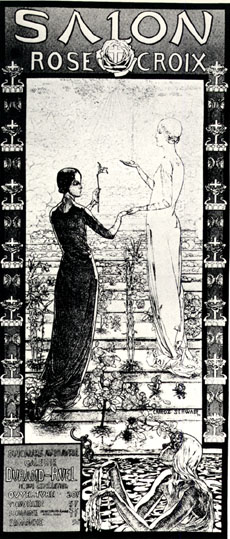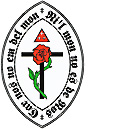
The Salon has a long, rich history in French
society that can easily be traced back to the 18th century.
These pre-Revolutionary Salons were organized by some of
the leading women of Parisian society. Here, such great
French philosophers as Voltaire and Rousseau plied their
trade, participating in the movement and exchange of ideas
which had begun in the 17th century known as the "Republic
of Letters". Salonnières,
the women who ran the Salons, and Philosophes,
the men who played a corresponding and complimentary role
worked together to achieve the ends of philosophy as the
broad project of the Enlightenment. The Parisian Salon served
as a base for networking the social and intellectual exchanges
connecting Paris, the 'City of Light' and capital of the
Enlightenment, with the rest of France.
Salonnières tended to be from the
most influential ranks of high society, being either nobility
or 'upper middle-class' bourgeoisie. Women were treated
as equals in the Salon environment, which was a radically
counterculture idea for the time, and the Salon provided
a means for women to receive the advanced education that
was often denied them. Consequently, admittance to these
salons was highly sought after. It was the job of the Salonnière
to keep the conversation flowing and to be able to jump
in with an insightful remark when the conversation faltered.
Besides the stimulating, erudite conversation, writing was
also important. The activities of the Salon were often centered
around topics contained in circulated letters and pamphlets
prepared by philosophers of the period which were then circulated
prior to meeting at a Salon. These philosophers often tended
to favor, and would occasionally cosponsor, a particular
Salon. After the revolution these Salons continued, but
the focus of discussion shifted from revolutionary politics
and philosophy to safer topics such as art and literature.
Amidst the political turmoil following the Revolution, Salons
decreased in popularity.
During the bohemian revolution of the late
19th century, however, people again sought out places for
stimulating conversation like cafés and Salons. Of
particular interest to us, are the esoteric Salons that
were organized around the same time as the fledgling Theosophical
Society. The most famous of these was the salon of Lady
Marie Caithness and her circle, this would later become
known as the "Société Théosophique
d'Orient et d'Occident." Jules Doinel, who reestablished
the Gnostic Church and who had, himself, been gifted with
visions throughout his life, participated in a series of
séances at her Salon that were attended by many notable
occultists of the time. It was during these séances
that Doinel received his vision of Sophia Achamoth who then
charged him with reestablishing her Gnostic Church.
Besides these Theosophical Salons, there
were also 'Salons de la Rose+Croix', established in 1892
by Joséphin Péladan. Péladan had worked
with Stanislas de Guaïta and his Ordre
Kabbalistique de la Rose+Croix, but then broke away
and founded his own group - the Rose+Croix
Catholique du Temple et de Graal, Jean Bricaud and
Constant Chevillon also had their Ordre
du Rose+Croix Kabbalistique et Gnostique. These Salons
endeavored to restore "the faith of the ideal, with an accent
on beauty and tradition", and were focused on catholic,
mystical or spiritual themes. Rose+Croix Salons lasted for
about five years, and included such notable participants
as artists Gustave Moreau, Félicien Rops and Georges
Rouault. The composer Erik Satie worked directly with Péladan
for a period, writing music for his plays and rituals, which
were performed in these Rose+Croix Salons.
The Salons of 19th century and early 20th
century France, were a meeting place in which friends gathered
informally on a regular basis to converse on a myriad of
interesting topics. Salons continued to serve as a hub for
the various esoteric, spiritual and chivalric organizations
where interested people could become familiar with the people,
ideals and initiatic traditions available. This
is our model for a study group, or "le Salon". It
is a group of people which meets regularly, once a month
in someone's home or a designated meeting room and spends
an evening of intellectually stimulating conversation based
on Gnostic themes and topics related to the French Esoteric
Tradition, and led by someone authorized by our community.



